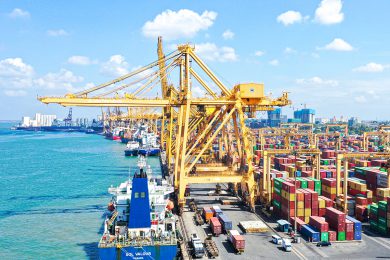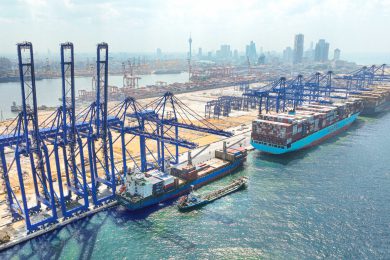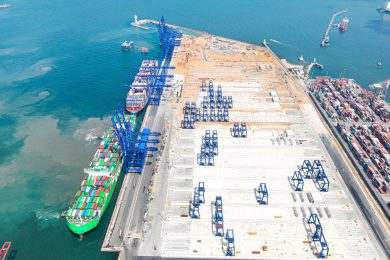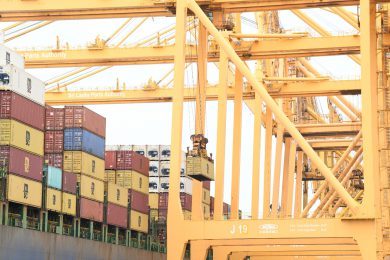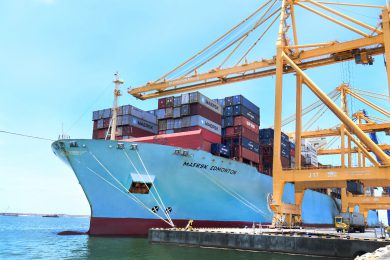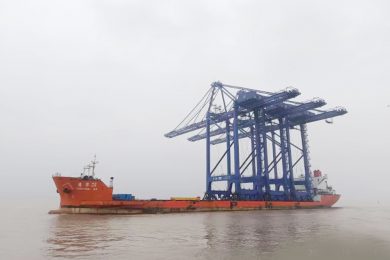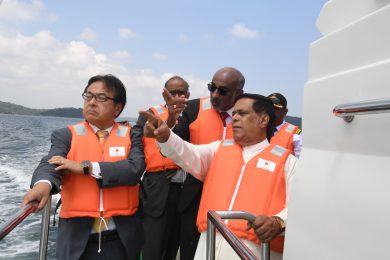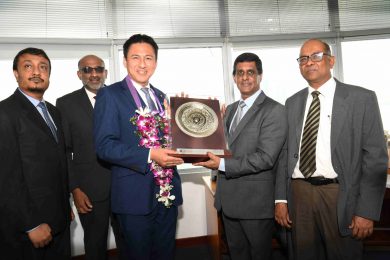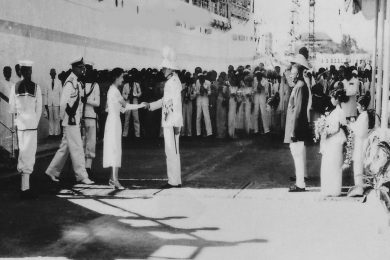On June 25, we celebrated the Day of the Seafarer. What many believe to be basic human rights are still being fought for at sea
by Penny Thomas
It’s unlikely that seafarers choose a career onboard for praise and recognition. Most, like those with shore-based jobs, just want to do their job well and in return, be treated with a level of respect everyone should expect, have access to reasonable working conditions and receive a fair wage for their efforts.
Their plight during the pandemic has been well documented, and this, coupled with the more recent knock-on effects of the war in Ukraine, is taking its toll on the seafaring community.
All this on top of the ‘usual’ hazards of the job such as bad weather and piracy.
It’s right to acknowledge the sacrifices seafarers make to enable the 21st century-lifestyles to which so many parts of the world are accustomed.
And as the world celebrates Day of the Seafarer, is also an opportunity to bring to the fore the many challenges and hardships that are often faced and in doing so bring about change.
Increasingly, the plight of seafarers is being seen as a shared responsibility and it’s a sentiment that can at least in part be attributed to the momentum of shining a spotlight on seafarers and their role in global trade.
Industry also is taking note and doing more to create a positive experience onboard ship for their crew. Many responsible companies are today making a huge effort to ensure the emotional and physical well-being of those that sail their ships.
Also, there have been some key changes over the past few years that should yield benefits for the future.
One example is the acknowledgement by a growing number of governments that seafarers are key workers. During the pandemic seafarers found themselves caught up in a crew change crisis that left them unable to leave ship and their contracts being extended beyond what is usually allowed under international labour laws.
As they did not have key worker status in many International Maritime Organization (IMO) member states, there was no requirement in those countries to allow them to disembark and take shore leave. Similarly, it was difficult for crew wishing to join ship to relieve their colleagues already onboard. It resulted in hundreds of thousands of seafarers staying onboard and working past their contracts.
In September 2020, IMO’s Maritime Safety Committee released a circular calling on member states to allow for crew changes and to designate seafarers as key workers. Lobbying and campaigning by various companies and organisations has resulted in a steady trickle of signatories and of the 175 member states that form IMO, 62 have given seafarers key worker status, according to the most recent IMO circular on 31 March this year.
Whilst this list represents only a third of member states, there are some notable seagoing nations included, such as the Philippines, Indonesia, Russian and Ukraine.
Another international body that is slowly improving the status quo for seafarers is the International Labour Organization (ILO).
Earlier this month, amendments to the Maritime Labour Convention – widely known as the ‘seafarers’ bill of rights’ – were adopted, and will enter into force by December 2024.
The amendments include items such as access to clean, free-of-charge drinking water and medical care ashore. Many would view these conditions are a basic human right, and the fact that they are only being introduced onboard ship in 2022 is a valuable reminder of the hardships often endured at sea.
The amendments also require ship owners and operators to make internet access available to crew. Whilst this may seem like a major step forward for quality of life onboard and enable seafarers to keep in touch with their loved ones more easily, it is not without its caveats, as there is no requirement for internet access to be made free of charge.
Whilst lobbyists such the International Transport Workers’ Federation (ITF) called for free internet, their arguments were rejected.
Mark Dickinson, vice chair of the International Transport Workers’ Federation, Seafarers’ Section, STC vice-president and spokesperson for the Seafarers Group, said of the decision:
Being able to keep in touch with family and friends isn’t just a nice-to-have, it’s a basic human right. That’s why we fought so hard for seafarers to be given internet access and to have a mandatory provision in the MLC.
It’s a sentiment that resonates throughout the most recent Mission to Seafarers Seafarer Happiness Index (SHI). The report published in April says that in response to the question, ‘how happy are you about contact with family when at sea’ many replied “no internet”. One seafarer wrote: “not having Wi-Fi is the biggest challenge on board and the voyages we take are long voyages which means we only talk to our loved ones after two months. Sometimes when we reach port you find that sim cards are expensive”.
As the report notes, connectivity and contact with friends and family “shapes the happiness of seafarers massively”.
According to the report seafarers’ happiness is at its lowest ebb in eight years. And a 2021 Bimco and International Chamber of Shipping’s joint Seafarer Workforce Report, says that the changing supply and demand of seafarers will result in a workforce shortage unless the industry significantly increases its recruitment levels. It writes that there has been an 11.8% rise in demand for STCW officers since 2015, and unless measures are put in place, there will be a shortfall of 26,000 officers in 2026.
Many organisations and companies continue to lobby hard for the fairer treatment of seafarers, but ultimately seafarers can vote with their feet and choose to leave their careers at sea behind. Further, those that may once have considered going to sea, may choose a different path based on the experiences of others.
Perhaps all that would be needed to encourage a strong workforce going forward is access to a few basic conditions that those on shore take for granted.
As we say thank you to seafarers today, let’s remember that these invisible workers provide the backbone of the global economy and are integral to today’s world. By making them more visible we can improve their status and the standards in which they work.
Ultimately we must ask ourselves, where would we be without you?
Penny Thomas is Account Manager at London based public relations agency, Navigate PR. DShe writes for Marine Traffic where this piece first appeared. Views expressed in this article are the author’s own



